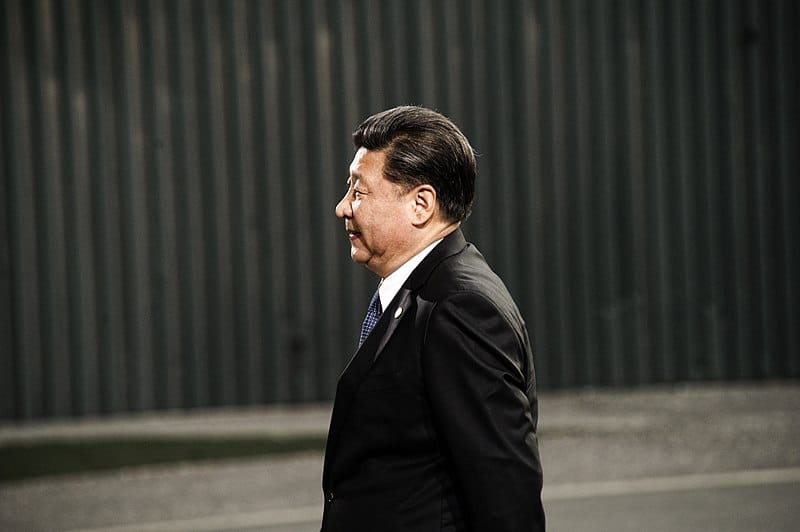The bellwether meeting for the formulation of economic policy by the Chinese central government has outlined eight key missions for the upcoming year.
China held its Central Economic Work Conference (中央经济工作会议) in Beijing from 16 – 18 December, with key participants including President Xi Jinping and Premier Li Keqiang, as well as politburo members Li Zhanshu (栗战书), Wang Yang (汪洋), Wang Huning (王沪宁), Zhao Leji (赵乐际) and Han Zheng (韩正).
The Conference said that 2020 was an “extremely unusual year in the history of the New China” as a result of the COVID-19 pandemic, and that China has now become “the only major economy in the world to achieve positive growth.”
“Science and tech innovation obtained major advances, reform and opening achieved key breakthroughs, and the livelihoods of the people enjoyed vigorous protection,” said the Conference.
The Conference called for “accelerating the establishment of a new development condition in which primary domestic circulation is the main entity, and domestic and international dual circulation are mutually reinforcing.”
The Conference also outlined a total of eight “key missions” for 2021:
- Strengthen the strengthen of national strategic technologies. The Conference called for “fully employing the role of the state as a major science and technology innovation organisation, effectively employing the advantages of a new model nationwide system, and effectively employing the role of key research institutions and tertiary institution state teams,” as well as “the focused arrangement of a cohort of foundational academic and technological research centres, and support for qualified regions to establish international and regional science and technology innovation centres.”
- Strengthen China’s independent ability to control industrial supply chains. According to the Conference “the security and stability of industry supply chains are the foundation for the establishment of new development conditions,” and China must “resolve as quickly as possible a group of ‘choke point’ problems…and hash out even more unique capabilities.” China will “create foundations for basic spare parts, basic technology and key basic materials,” as well as “strengthen top-level design, applications guidance and shared technological supply.”
- Uphold the strategic keystone of expanding domestic demand. China will implement “effective systemic arrangements for the rational guidance of consumption, savings and investment,” as well as “combine expansions in consumption with improvements to living conditions.” The Chinese government will engage in the “orderly removal of certain administrative restrictions on consumption and purchasing, fully unearth the consumption potential of rural areas, raise the efficiency of public services including education, healthcare, aged care and childcare; vigorously grow the digital economy, and expand investment in manufacturing sector equipment upgrades and technological improvements.”
- Comprehensive improvement of reform and opening. In order to achieve new development conditions, the Conference considers it necessary to “establish a high-level socialist market economy, implement high-level external opening, and drive reform and opening to be mutually reinforcing.” The Chinese government will “improve macro-economic management, strengthen international macro-policy coordination, deeply implement the state-owned enterprise three-year reform campaign, optimise the environment for the development of the private economy, improve corporate governance and spur the vitality of various types of market actors.” It will also seek to “loosen market entry conditions, drive fair competition, protect intellectual property rights, establish a major unified market, and operate a market-used, rule-of-law-based, internationalised commercial environment.” With regard to the financial sector, China will “improve the governance of financial institutions, spur the healthy development of capital markets, raise the quality of listed companies, and strike against various forms of conduct to abscond from debts.”
- Effectively resolving the problems of seeds and cultivated land. According to the Conference the key to ensuring food security is to pursue a strategy of “storing grain in the earth and storing grain in technology.” “China will “strengthen the protection and usage of germplasm resources, strengthen the establishment of seed resources, firmly maintain the red line of 1.8 billion mu of arable land, and firmly guard against the ‘defarming’ of arable land.”
- Strengthening anti-trust measures and preventing the disorderly expansion of capital. “Combating trusts and combating inappropriate competition is the intrinsic demand for improving the socialist market economy and driving high-quality growth,” said the Conference. China will “support the innovative development of platform enterprises, strengthen international competitive capability, and support the joint development of state-owned and private economies.” The Conference also called for “improving digital regulations and legal standards for the identification of platform enterprise monopolies; the gathering, usage and management of data, and the protection of consumer rights.” China will also “firmly oppose monopolies and inappropriate competitive conduct.”
- Effectively resolving the pronounced problems of residential housing in major cities. The Chinese government will “firmly uphold the position that homes are to be used for occupation and not speculation, formulate policies on the basis of local conditions, and implement multiple policies simultaneously. The home rental market also received heavy emphasis, with the Conference indicating that China will “give strong attention to the establishment of welfare rental housing, accelerate improvements to long-term rental housing policy, and standardise the development of the long-term rental market.” Land supply will be directed more towards the development of rental housing, while the government will explore the use of the idle land of collectives and other entities for the creation of rental housing, with state-owned and private enterprises both set to play a role.
- Effectively perform work for peak carbon and carbon neutrality. China has set the goals of achieving peak CO2 emissions before 2030, and carbon neutrality before 2060. According to the Conference China will “accelerate adjustment and optimisation of the industrial structure and energy structure and drive for peak consumption of carbon as soon as possible,” while also “undertaking large-scale greenification campaigns for national land, and raising the carbon sink capacity of ecological systems.”




